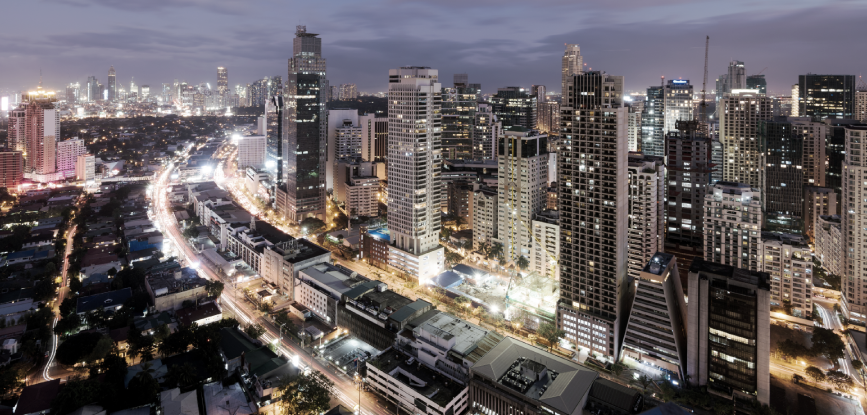
Liberalization of Foreign Equity Restrictions for the Public Services Sector in the Philippines
For the longest time, the term “public service” has been loosely used interchangeably with “public utility” in the Philippines. The Supreme Court, in a decision, defined “public utility” as a “business or service engaged in regularly supplying the public with some commodity necessary for the maintenance of life and occupation of the residents.”
Under the Philippine Constitution, only Filipino citizens or corporations, at least 60% of which are Filipino-owned, may be given a franchise or authority to operate a public utility.
This constitutional limitation has been seen as a barrier to foreign direct investment (FDI) in the country and put the Philippines on the list of the most restrictive jurisdictions for foreign investors.
To encourage private enterprises and the expansion of the base of investment in the country, then President Rodrigo Duterte signed into law Republic Act No. 11659 on 2 March 2022. This introduced amendments to the 85-year-old Commonwealth Act No. 146, otherwise known as Public Service Act (“PSA”), finally distinguishing public utility from public service and effectively clarifying the foreign equity restrictions imposed by the Philippine Constitution and other relevant statutes.
Under the said amended law, a public utility is expressly defined as a public service that operates, manages or controls for public use in any of the following services:
- Distribution of electricity;
- Transmission of electricity;
- Petroleum and petroleum products pipeline transmission systems;
- Water pipelines distribution systems and wastewater pipeline systems;
- Seaports; and,
- Public utility vehicles.
All concessionaires, joint ventures, and other similar entities that wholly operate, manage, or control for public use the enumerated sectors above are public utilities.
Further, the President, upon the recommendation of the National Economic Development Authority (“NEDA”), may recommend to Congress the classification of public service as a public utility based on the following criteria:
a. The person or juridical entity regularly supplies, transmits, and distributes to the public through a network, a commodity, or a service of public consequence;
b. The commodity or service is a natural monopoly that needs to be regulated when the common good so requires it. For this purpose, a natural monopoly exists when the market demand for a commodity or service can be supplied by a single entity at a lower cost than by two or more entities;
c. The commodity or service is necessary for the maintenance of life and occupation of the public; and,
d. The commodity or service is obligated to provide adequate services to the public on demand.
In the interest of national security, the President has also given the power to suspend or prohibit any proposed merger or acquisition transaction or any investment in a public service that effectively results in the grant of control, whether direct or indirect, to a foreigner or a foreign corporation.
Meanwhile, in the said operation and management of critical infrastructures, as may be declared by the President, foreign nationals shall not be allowed to own more than 50% of the capital of entities engaged unless the country of such foreign national accords reciprocity to Philippine nationals, as may be provided by foreign law, treaty, or international agreement.
Opportunities for Foreign Investors in the Philippines
A public service, which is not classified as a public utility, shall be considered a business affected by public interest. Notwithstanding any law to the contrary, nationality requirements shall not be imposed by the relevant administrative agencies on any public service not classified as a public utility.
With the passage of the law, up to 100% foreign ownership is now allowed for entities engaged in delivering public services not classified as public utilities.
Unlike before, multiple vital sectors such as subways, airports, airlines, railways, expressways, tollways, power supply, and power generation, to name a few, are no longer subject to foreign equity restrictions.
This development, along with other government initiatives to entice foreign investments, including but not limited to lowering the specific corporate tax rates, granting fiscal incentives, tax relief, and preferential tax treatment to companies whose activities fall within the government’s Investment Priorities Plan, and introducing mechanisms to ensure efficiency by streamlining government processes, the Philippines posits to be a competitive investment hub in Asia and pushes to increase foreign direct investments and players in these newly liberalized sectors.
For Filipinos, the liberalization of the economy, which in turn increases competition in the Philippine market, could mean lower prices for higher quality goods and services, a greater variety of choices, and the introduction of more innovative solutions to complex problems in the public service sector.
Be Properly Guided in Doing Business in the Philippines
With the easing of foreign investment restrictions, more foreign companies can take an interest in the country and grow their businesses while aiding local businesses altogether. Be properly guided in investing and expanding your business by reaching out to business consulting firms to help you navigate the process of setting up your business in the Philippines.
Expand Your Business Footprint in the Philippines
With the eased restrictions on foreign equity, our team of experienced business consultants are dedicated to helping you start and grow your business in the Philippines.

